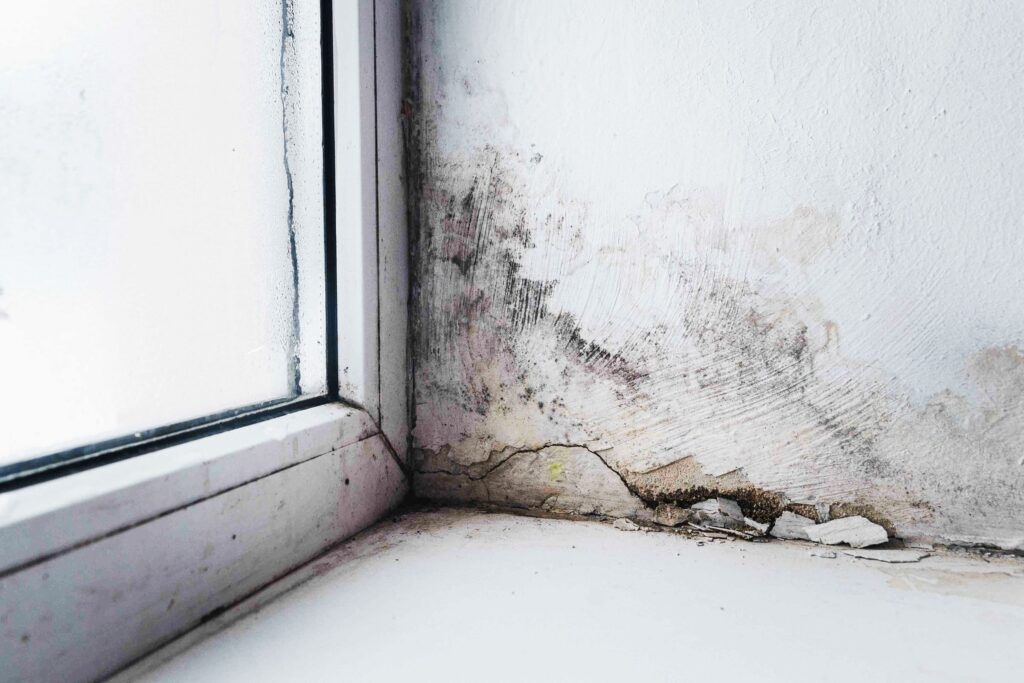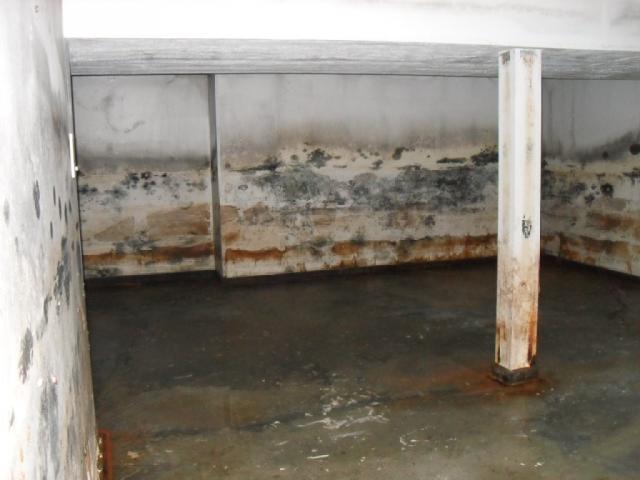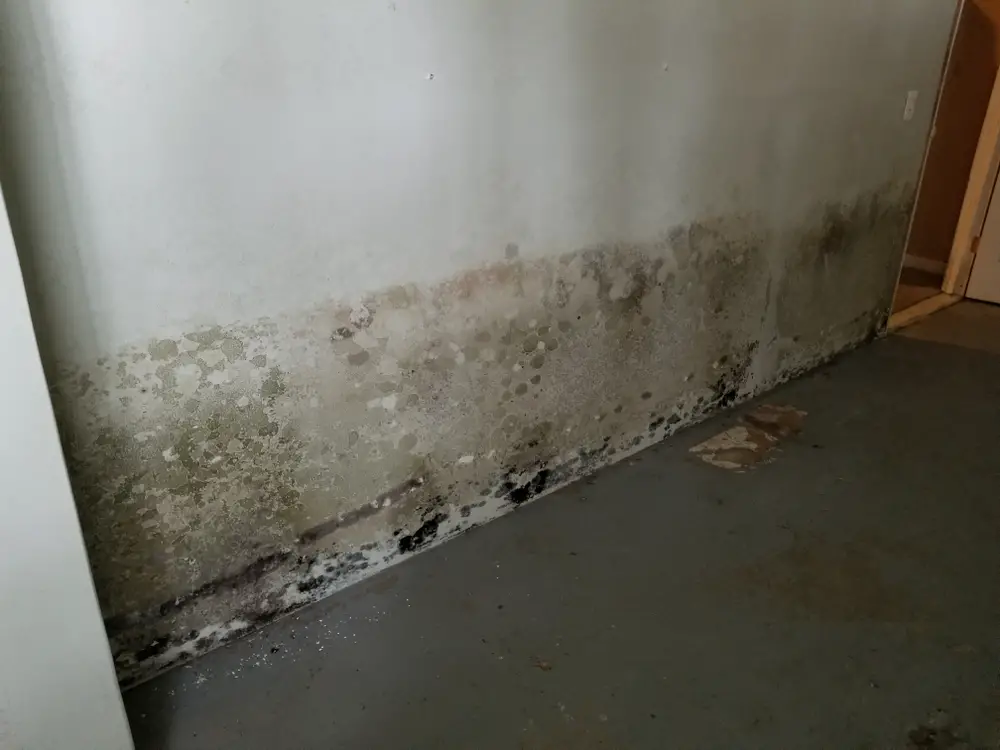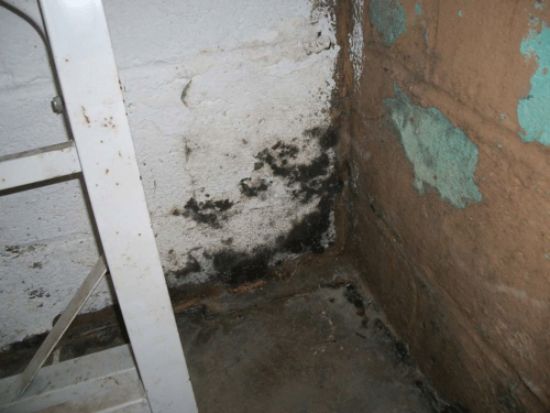Living in a house with mold in the basement can pose serious health risks and potential damages to your property. Mold growth is a common problem faced by homeowners, often caused by moisture accumulation in the lower levels of the house. From respiratory issues to allergies and even structural damage, the presence of mold in your basement demands immediate attention and proper remediation to ensure a safe and healthy living environment for you and your family. In this article, we will explore the potential dangers of living in a house with mold in the basement and discuss the importance of addressing this issue promptly.

The Dangers of Mold in the Basement
When it comes to the safety and health of your home, mold in the basement is a concern that should not be overlooked. Mold growth in this area of the house can lead to a variety of health risks and structural issues, making it important to address the problem promptly and effectively. In this article, we will explore the potential dangers of mold in the basement, how to identify its presence, the risks of living with mold, taking action to address the issue, preventing future growth, seeking professional help, legal considerations, and temporary living arrangements. By understanding the risks and taking appropriate measures, you can ensure the long-term well-being of both your home and its occupants.
Health Risks Associated with Mold Exposure
Exposure to mold in the basement can have detrimental effects on your health. The following are some of the most common health risks associated with mold:
Respiratory Problems
Breathing in mold spores can lead to a range of respiratory issues. Individuals exposed to mold may experience symptoms such as coughing, wheezing, chest tightness, and nasal congestion. Those with pre-existing respiratory conditions, such as asthma, may find their symptoms worsen in the presence of mold.
Allergic Reactions
Mold is a known allergen, and exposure to it can trigger allergic reactions in susceptible individuals. Common symptoms include sneezing, itching, watery eyes, and a runny nose. Severe allergic reactions can also occur, leading to more serious health complications.
Compromised Immune System
Certain types of mold produce mycotoxins, which can be harmful to the immune system. Prolonged exposure to these mycotoxins can weaken the body’s ability to fight off infections and illnesses, leaving individuals more susceptible to various health issues.
Other Health Issues
In addition to respiratory problems, allergies, and immune system compromise, exposure to mold in the basement has been linked to other health issues. These include skin irritation, headaches, fatigue, and even neurological symptoms in severe cases.

Identifying Mold in the Basement
To effectively address the issue of mold in your basement, it is crucial to be able to identify its presence. Look out for the following signs:
Visible Signs of Mold
One of the most obvious indications of mold in the basement is the presence of visible mold growth. This can appear as small patches or larger areas of discoloration, often green, black, or brown in color. Pay attention to corners, walls, floors, and ceilings, as mold tends to thrive in areas with high humidity and moisture.
Musty Odor
If you notice a musty or damp smell in your basement, this could be a sign of mold. The odor is often described as earthy or stale and is a result of the microbial volatile organic compounds (MVOCs) released by mold during its growth.
Water Damage
Water damage in the basement, whether from leaks, flooding, or excess humidity, provides a favorable environment for mold growth. Look out for signs of water damage such as stains, discoloration, or peeling paint on walls and ceilings, as these can indicate the presence of mold.
Leaking Pipes or Moisture Issues
The presence of leaking pipes, condensation, or excess moisture in the basement can contribute to mold growth. Check for any signs of water accumulation, dripping pipes, or dampness in the affected area. Moisture meters can also be used to assess the level of humidity, helping to identify potential mold breeding grounds.
Hiring a Professional for Mold Testing
If you suspect mold in your basement but are unable to identify it visually, it may be necessary to hire a professional mold testing service. These professionals can conduct air quality tests and take samples to determine the presence and type of mold in your basement. Their expertise ensures accurate identification and helps to formulate an effective remediation plan.
Potential Risks of Living with Mold in the Basement
Living with mold in the basement poses various risks to the structure of your home as well as the health and well-being of its occupants. Some of the potential dangers include:
Structural Damage
Mold growth can weaken the structural integrity of your home. As mold feeds on organic materials such as wood, drywall, and insulation, it can cause these materials to deteriorate. This can lead to weakening of walls, floors, and ceilings, potentially requiring costly repairs or even rendering the affected area unsafe.
Increased Moisture and Humidity
Mold thrives in environments with high moisture and humidity levels. If left unaddressed, mold growth in the basement can contribute to increased moisture and humidity throughout your home, making it a breeding ground for further mold infestations in other areas.
Spread of Mold Spores
Mold spores are microscopic and can easily become airborne. Once airborne, they can be transported to other areas of your home, increasing the risk of mold contamination in previously unaffected spaces. This can result in more extensive and costly remediation efforts.
Decreased Indoor Air Quality
Mold releases spores and MVOCs into the air, leading to poor indoor air quality. Inhaling these particles can cause or exacerbate respiratory issues, allergies, and other health problems. Poor indoor air quality can also have a negative impact on the overall comfort and well-being of occupants.
Property Value Decrease
The presence of mold in the basement can significantly decrease the value of your property. Mold is often seen as a serious issue by potential buyers, making it difficult to sell your home at its full market value. It is essential to address the mold problem promptly to protect your investment.

Taking Action to Address Mold in the Basement
To effectively address mold in your basement, it is important to take immediate action. Here are some steps you can take:
Fixing Moisture Problems
Identify and address any moisture-related issues in your basement. This could involve fixing leaks, improving drainage, or implementing proper waterproofing techniques. By eliminating the source of moisture, you can prevent further mold growth.
Repairing Leaks
Leaks in pipes or around windows and doors can contribute to excessive moisture in the basement. It is crucial to repair these leaks promptly to prevent water damage and inhibit mold growth.
Improving Ventilation
Proper ventilation is key to reducing moisture and humidity levels in the basement. Ensure that your basement is adequately ventilated by installing fans, vents, or dehumidifiers. This will help to promote air circulation and prevent the buildup of moist air.
Removing Mold-Infested Materials
If mold has proliferated on materials such as carpets, insulation, or drywall, it may be necessary to remove and replace these affected materials. This will help to eliminate the source of mold growth and prevent further contamination.
Professional Mold Remediation
In cases where mold growth is extensive or poses significant health risks, it is advisable to seek professional mold remediation services. Mold remediation specialists have the expertise and equipment to effectively remove mold, restore indoor air quality, and ensure a safe living environment. Their comprehensive approach involves containment, removal, thorough cleaning, and preventive measures to minimize the risk of recurring mold growth.
Preventing Mold Growth in the Basement
Taking steps to prevent future mold growth in your basement is crucial for the long-term well-being of your home. Consider the following preventative measures:
Controlling Moisture and Humidity
Regularly monitor moisture levels in the basement and maintain them below 50% to discourage mold growth. Use dehumidifiers to control humidity and consider installing a moisture alarm to alert you of any sudden moisture increase.
Proper Ventilation
Ensure proper ventilation in the basement by opening windows, installing vents or fans, and utilizing exhaust systems. This helps to circulate fresh air and expel damp air, reducing the risk of mold growth.
Insulation and Moisture Barriers
Insulating walls, floors, and pipes in the basement can help to prevent condensation, reducing the potential for mold growth. Additionally, installing moisture barriers, such as vapor retarders, can help to inhibit moisture infiltration from the soil or surrounding areas.
Regular Maintenance
Regularly inspect your basement for any signs of leaks, water damage, or moisture issues. Promptly address these concerns to prevent the onset of mold growth. Regular maintenance also includes cleaning and drying any spills or floods in the basement promptly.
Using Dehumidifiers
Consider using dehumidifiers specifically designed for basement environments. These appliances help to remove excess moisture from the air, maintaining optimal humidity levels and preventing mold growth.

Temporary Solutions to Live with Mold in the Basement
In some situations, addressing the issue of mold in the basement may take time. During this period, consider implementing temporary solutions to minimize the risks associated with mold:
Using Mold-Resistant Materials
If you are unable to remove all mold-infested materials immediately, consider using mold-resistant materials in the meantime. These materials have been specifically designed to inhibit mold growth, reducing the risk of further contamination.
Sealing Off the Affected Area
Isolate the affected area by sealing off the basement from the rest of the house. This can be done using plastic sheets or barriers to prevent the spread of mold spores to other living spaces.
Regular Cleaning and Maintenance
Maintain a regular cleaning schedule in the basement to minimize the presence of mold spores. Use mold-specific cleaning products or a mixture of white vinegar and water to clean mold-affected surfaces. Take precautions such as wearing gloves and a mask to protect yourself during the cleaning process.
Using Air Purifiers
Utilize air purifiers with HEPA filters in the basement to help improve indoor air quality. These devices can capture and remove mold spores from the air, reducing the risk of respiratory issues and allergies.
Protective Measures for Occupants
Ensure that occupants of the house are educated on the risks associated with mold and take necessary precautions. Encourage the use of proper personal protective equipment (PPE) when in the basement, such as gloves, masks, and goggles, to minimize exposure.
Seeking Professional Help for Mold in the Basement
In cases where the mold problem is extensive or poses significant health risks, it is crucial to seek professional help. Here are some reasons why hiring a mold remediation specialist is important:
Hiring a Mold Remediation Specialist
Mold remediation specialists have the knowledge, experience, and specialized equipment to effectively remove mold from your basement. Their expertise ensures that the remediation process is thorough and that mold is properly eradicated.
The Importance of Professional Assessment
Professional mold remediation services typically begin with a comprehensive assessment of the situation. This assessment helps to determine the extent of the mold problem, identify its causes, and develop an appropriate remediation plan tailored to your specific needs.
Proper Removal and Disposal of Mold
Mold removal should be handled with caution to prevent the spread of spores and further contamination. Mold remediation specialists are trained in safe removal and disposal techniques, ensuring that the mold is handled properly and minimizing the risk of cross-contamination.
Preventing Further Contamination
Professional mold remediation services not only remove existing mold but also take preventive measures to minimize the risk of future contamination. This can include addressing underlying moisture issues, improving ventilation, and implementing strategies to prevent mold growth.
Ensuring the Safety of Residents
One of the primary reasons for seeking professional help is to ensure the safety of the occupants. Mold remediation specialists follow industry standards and guidelines to create a safe environment during and after the remediation process. This helps to protect the health and well-being of both you and your loved ones.

Legal Considerations for Living with Mold in the Basement
Living with mold in the basement can have legal implications, especially in cases where it affects the health and safety of tenants. Consider the following legal considerations:
Landlord-Tenant Relationships
If you are a tenant, it is important to understand your rights and responsibilities regarding mold in your rental property. Familiarize yourself with local laws and regulations that govern landlord-tenant relationships and mold-related issues.
Tenant Rights and Responsibilities
Tenants have the right to live in a safe and habitable environment, free from health hazards such as mold. It is the landlord’s responsibility to address mold problems promptly and effectively. However, tenants also have a responsibility to report any signs of mold to their landlords as soon as they become aware of the issue.
Property Disclosure Laws
In some jurisdictions, landlords are legally obligated to disclose the presence of mold or any previous mold-related issues to potential tenants. Familiarize yourself with the property disclosure laws in your area to ensure that you are aware of your rights as a tenant or homeowner.
Insurance Coverage
Review your insurance policy to determine if mold-related damages are covered. Some policies may exclude or limit coverage for mold issues. It is advisable to discuss your coverage options with your insurance provider to ensure adequate protection.
Legal Actions for Compensation
In cases where mold-related issues have caused significant damage or have negatively impacted the health of occupants, legal actions for compensation may be pursued. Consult with an attorney who specializes in mold-related cases to understand your legal options.
Alternative Living Arrangements until Mold Remediation
In certain instances, it may be necessary to seek alternative living arrangements until the mold remediation process is complete. Consider the following steps:
Temporarily Relocating
If the mold problem is severe or poses a significant risk to health, it may be necessary to temporarily relocate until the remediation process is finished. Moving to a safe location ensures the well-being of all occupants during the treatment period.
Finding Temporary Accommodations
Research nearby hotels, family or friends’ homes, or short-term rentals to find suitable temporary accommodations during the mold remediation process. Ensure that the living arrangements are safe and comfortable for all occupants.
Storing and Protecting Belongings
Before leaving the premises, take care to store and protect your belongings to prevent mold contamination. Remove valuable or sentimental items from the affected area and properly seal them in airtight containers, ensuring they are stored in a mold-free environment.
Maintaining Communication with Landlord
Keep open lines of communication with your landlord throughout the mold remediation process. Regular updates and clear communication will assist in coordinating schedules, addressing concerns, and ensuring a smooth transition back into the property once remediation is complete.
Ensuring Health and Safety
While living in temporary accommodations, maintain general health and safety practices. Follow any necessary precautions recommended by healthcare professionals to minimize health risks associated with exposure to mold.
Conclusion
Living with mold in the basement poses significant dangers to both the structural integrity of your home and the health of its occupants. Identifying the signs of mold, understanding the health risks associated with exposure, and taking prompt action are essential steps to protect your home and well-being. Whether through DIY measures, professional assistance, or legal considerations, addressing mold in the basement requires a proactive approach. By ensuring long-term mold prevention, seeking professional help when needed, and staying informed about legal considerations, you can create a safe and healthy living environment for yourself and your loved ones. Remember, the health and well-being of your home and its occupants should always be a top priority.